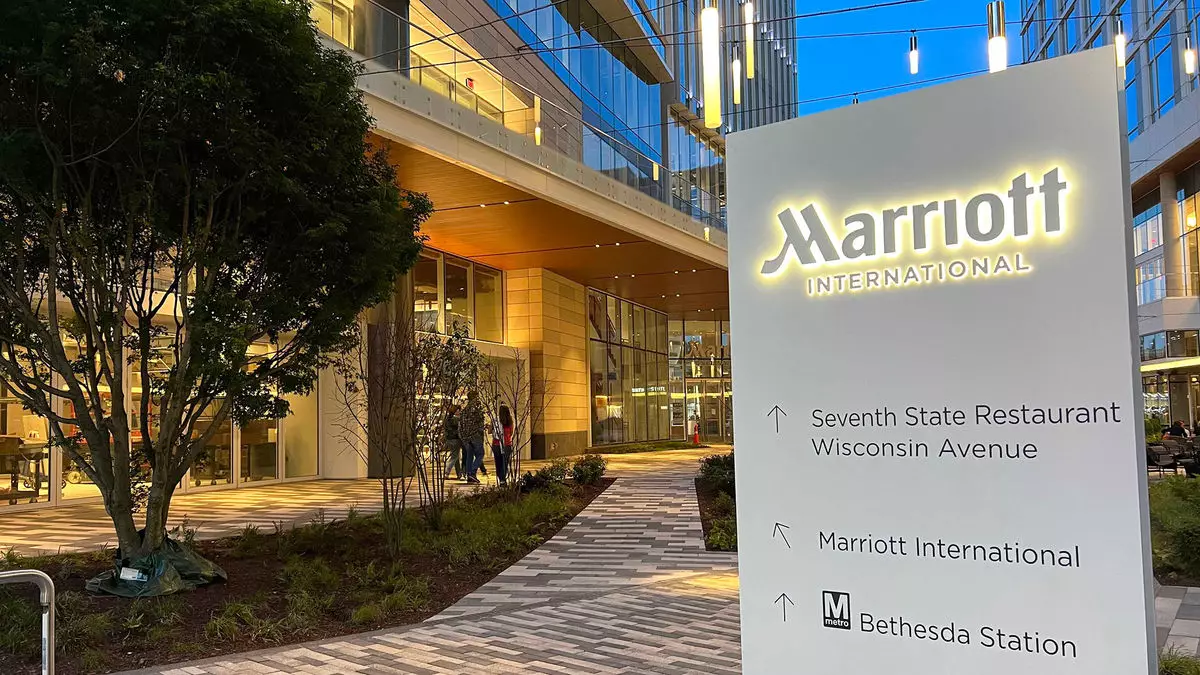Marriott International has recently expressed confidence in its growth trajectory despite emerging economic challenges, particularly concerning inbound travel from Canada and Mexico. During a fourth-quarter earnings call, CFO Leeny Oberg pointed out that while there are concerns about potential reductions in travel due to rising economic tensions, the impact on Marriott’s business appears minimal. Canadian and Mexican visitors account for approximately 1% to 2% of the company’s room night business—a relatively small percentage, but one that could have broader implications for the industry as a whole.
Despite these geopolitical factors, Marriott demonstrated robust performance metrics in its latest quarterly report. Notably, global revenue per available room (RevPAR) increased by 5%, bolstered by a 3% rise in average daily rates (ADR) and an uptick in occupancy rates. Marriott’s ability to sustain growth during a politically charged environment illustrates its resilience and strategic positioning in the hospitality sector.
The potential decline in Canadian and Mexican travelers stems from a number of economic factors, including tariff threats and market uncertainty introduced by the current U.S. administration. Just earlier this month, President Trump deferred tariffs on Mexican and Canadian goods for 30 days, aligning with a political strategy that favors tighter border security. Given that a reduction in Canadian travel could lead to millions of lost visits and revenue, the gravity of the situation cannot be overlooked.
This complex relationship between travel and economic policy was underscored by Canadian Prime Minister Justin Trudeau’s encouragement for citizens to prioritize domestic tourism. His remarks came after the announcement of a 25% tariff on Canadian imports, reflecting the very real impact of political developments on consumer behavior. Marriott’s CFO acknowledges that it’s “too soon to say” if any significant impacts are being felt, but the indicators suggest a landscape that could shift dramatically depending on how these tensions evolve.
As part of its ongoing strategy, Marriott is gearing up for an expansive digital transformation, with the investment directed toward enhancing technology across several fronts. CEO Anthony Capuano highlighted that the new digital initiatives will encompass overhauls to property management, reservations, and loyalty systems. This multi-year investment aims to streamline operations and improve guest experiences, crucial elements that could significantly influence revenue streams beyond just room bookings.
Marriott’s approach recognizes the growing demand for a tailored customer experience. Enhancements in technology can facilitate smoother transactions in various services offered, including food and beverage and recreational options. By streamlining these processes, Marriott aims to maximize revenue opportunities for their owners, showcasing an understanding of the evolving hospitality landscape.
The company’s commitment to enhancing its existing portfolio is particularly evident in its venture with Elegant Hotels in Barbados, which Marriott acquired in 2020. With significant renovations planned for completion by 2025, the investment in these properties aims to enrich the guest experience while preparing for a future sale—an anticipated move given the market’s growing interest in premium all-inclusive resorts.
As the luxury segment of the travel industry rises, Marriott’s focus on this area is timely. A 6% increase in RevPAR for luxury and resort offerings underscores the health of this market, fueled by an increase in group travel and overall leisure engagement. The company’s strategy in luxury accommodations correlates well with current traveler preferences, positioning itself favorably for future growth.
Marriott International’s recent earnings indicate a company poised for resilience despite external pressures from economic and political upheaval. Their strategic investments in technology, alongside a keen focus on luxury growth and property enhancements, underscore a forward-thinking approach that seeks not only to weather current storms but to thrive in the evolving hospitality landscape. As the industry continues to grapple with uncertainties, Marriott’s agility and commitment to innovation may serve as vital assets in maintaining its market position and appealing to a diverse clientele in the years to come.


Leave a Reply